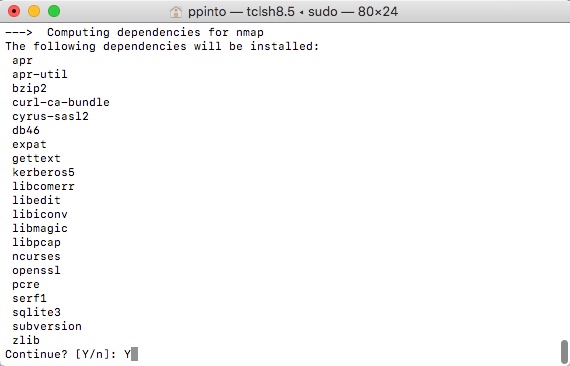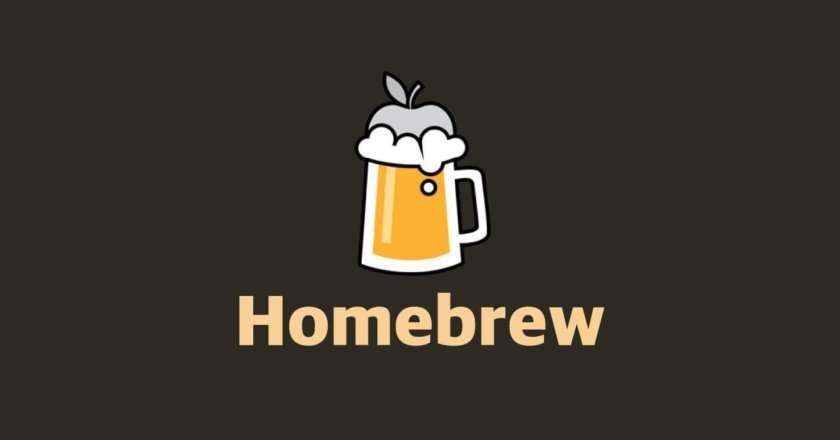
- #Homebrew vs macports 2017 how to#
- #Homebrew vs macports 2017 install#
- #Homebrew vs macports 2017 update#
- #Homebrew vs macports 2017 archive#
- #Homebrew vs macports 2017 password#
Again, I would build it on one Mac, but intend to run it on many other. A week or so later I may also want to add MariaDB, or any other tool that can be built from source using HomeBrew/MacPorts/Fink. But I would like to run my build of Midnight Commander on all of them. Those are just regular Macs with macOS installed, nothing else. However, those target Macs would not have HomeBrew/MacPorts/Fink, nor Xcode or gcc. The goal is to build it on one computer, then distribute and use on many target Macs. So I wonder if there is a recipe in any of HomeBrew/MacPorts/Fink to do something like this. Manually assembling all the necessary files for such a package is something I would not attempt. Sources and headers are not needed to run the tool, so those should be exluded from the package if possible.
#Homebrew vs macports 2017 archive#
I am happy with a tgz or zip archive as well, as long as it contains everything delivered for the right directories for the tool to work fine (including config file, sample, man, libs, etc) and nothing more. The distributed binary should function on the target Mac without HomeBrew, or MacPorts, or Fink ever being present.įor clarification: when I say "produce a binary package", I don't really care about the type of that "package". Compile a port on this Mac, and produce a binary package that can be distributed to other Macs (of the same architecture). This Mac has HomeBrew, or MacPorts, or Fink installed. HomeBrew is a great package manager just start installing some apps and explore.The idea is this: Have a dedicated Mac for building the ports. To remove the Home-brew installation and all packages it has installed. This directory is also out of the SIP bounds so there should be no authentication macOS error dialog boxes. Git: 2.30.1 => /Library/Developer/CommandLineTools/usr/bin/gitĪll installations via Homebrew are filed independently in the filing system in /usr/local/Cellar and linked into /usr/local/bin which is a directory which allows you to run these commands and apps as if part of the regular operating system. Homebrew Ruby: 2.6.8 => /System/Library/Frameworks/amework/Versions/2.6/usr/bin/ruby The output should be similar to … users % brew config You can see your Homebrew configuration by running brew config ?, well it depends on whether you Mac has an Intel chip or an Apple chip Intel Chip – Homebrew location /usr/local/ Apple Chip – Homebrew location /opt/homebrew/ To release a package from a certain version brew unpin packagename To hold a package at a certain version brew pin packagename
#Homebrew vs macports 2017 update#
To see what upgrade packages all or singular brew update To see what packages are out of date but not to upgrade them brew outdated To remove an installed application brew remove packagename


To list all apps installed by Homebrew brew list To search for an application: brew search
#Homebrew vs macports 2017 install#
One issue that typically comes up is an outdated or missing version of Xcode.įor the latest macOS, brew doctor will warn that the Homebrew install won’t be 100% if Xcode is not up to date, so update Xcode from the App Store. To check for any issues with the Homebrew install run: brew doctor To get started run brew help can give some command example usage. Please consider donating:Īfter this Homebrew is installed and ready to install other apps. => Homebrew is run entirely by unpaid volunteers. No analytics data has been sent yet (or will be during this `install` run).
#Homebrew vs macports 2017 how to#
Read the analytics documentation (and how to opt-out) here:

=> Homebrew has enabled anonymous aggregate formulae and cask analytics. HEAD is now at b4a4beeca8d bde: update 3.61.0.0 bottle. => The Xcode Command Line Tools will be installed. => The following new directories will be created: usr/local/share/zsh/site-functions/_brew => Checking for `sudo` access (which may request your password).
#Homebrew vs macports 2017 password#
If you don’t have Apples Xcode Command Line Tools installed it will alert you and you need to hit enter/return on the command line to install the Xcode Command Line tool and carry on with the Homebrew installation you will also need to enter your admin password a couple of times in the process. To download install Homebrew run the install script on the command line as below and let the script do its thing: /bin/bash -c "$(curl -fsSL )"


 0 kommentar(er)
0 kommentar(er)
